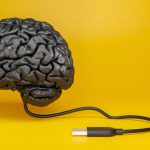The World Health Organisation (WHO) estimates that depression affects 350 million people globally. Depression is the leading cause of disability worldwide. 2.6 in every 100 people are estimated to suffer from depression.
Are You Depressed?
We all feel a bit low at times but when does a bad day or two become clinical depression? Depression comes in a few forms:
- Recurrent depressive disorder: this involves repeated depressive episodes. During these episodes, the person experiences low moods, loss of interest and enjoyment, and reduced energy leading to diminished activity for at least two weeks. (WHO)
- Bipolar affective disorder: this type of depression typically consists of both manic and depressive episodes separated by periods of normal mood. Manic episodes involve elevated or irritable mood, over-activity, pressure of speech, inflated self-esteem and a decreased need for sleep. (WHO)
- Seasonal Affective Disorder: a type of depression that comes and goes in a seasonal pattern. It is thought to be related to lower light levels in winter. (NHS choices)
In addition, many people suffering from common chronic medical conditions like back pain, arthritis and heart disease are likely to suffer from depressive symptoms.
Why Do I Feel So Low?
Depression is complex and often caused by a mix of social, psychological and biological factors. People who have been through stressful life events like bereavement, unemployment, major illness and trauma are more likely to develop symptoms, and it is no respecter of age, gender, ethnic group, social status or employment group. Depression is thoroughly equitable.
Many people with depression also suffer from anxiety symptoms, disturbed sleep and eating patterns. They may have feelings of guilt or low self-esteem, poor concentration and medically unexplained symptoms.
How to turn that black dog that brings you down into a down dog that brings you back!
Depression is often referred to as a ‘black dog‘ that comes to visit with sufferers seeing this black dog as a burden that invades every aspect of their life. Relief comes in the form of medications (antidepressants, tranquilisers and mood stabilisers), therapy (cognitive behavioural therapy, psychotherapy and counselling) and lifestyle changes. Mindful mediation and various exercise options are recommended by mental heath charities and the NHS.
So if exercise helps depression, and yoga is a form of exercise, then yoga should help depression — right? And meditation is a form of yoga too – result!
Meditate Yourself Better
Mindfulness meditation is specifically recommended to treat depression, with a 2008 study concluding that the addition of meditation to routine management was more effective than hypnosis and education or education alone.
Mindfulness and meditation take many forms, and there’s one to suit everyone:
- Sit comfortably upright (you don’t have to be cross legged, a chair or park bench is perfect) and breathe, paying attention to your breath and how it feels as it enters and leaves your body.
- There are various tablet and phone apps like Headspace that will guide you through meditation sessions and are ideal to use on the bus or train as well as at home.
- Meditation and mindfulness courses — I searched meditation courses in my area and a choice of 30 different options were at my fingertips. Some courses may have a religious emphasis but meditation is no longer the domain of Buddhist monks, it’s for people like you and me! There will be a class near you.
- If you are already a yogi then you could try taking a few minutes after your Śavāsana to sit in sukasana (cross legged) or lotus to meditate on an image or mantra in search of stillness of mind. Or you can go straight to meditation without āsana if you prefer.
Āsana away
Over the last 10 years there is a growing body of evidence that supports yoga in it’s physical form (āsāna) in the management of depression. It has been shown to help depression generally as well as antenatally, in older people, in women with Multiple Sclerosis, for women with menstrual disorder, in chronic low back pain. There are also testimonials in the yoga press about the benefits of yoga in seasonally affective disorder and for those of us who are not clinically depressed but are going through a low patch.
Putting It All Into Practice
Although it’s all very well and good to know that yoga can help anyone suffering from depressive symptoms, transforming that knowledge into practice is sometimes hard to do when we are well. It’s even more of a challenge when we are already struggling with our own personal black dog of depression. Here are a few things to keep in mind:
- Be realistic — Don’t challenge yourself to two hours of yoga a day when you feel like you can barely get out of bed each morning.
- Start small — A few deep breaths before you get out of bed or 5 minutes sitting in the garden being mindful of your breath is a great place to start. From here you can build up to being mindful for longer, maybe adding in some yoga poses or starting a regular class when you feel up to it.
- Don’t wait until you feel better — Yoga is supposed to help you improve and stay better. Start as soon as you feel low and keep going when you feel better to prevent relapses. Make yoga part of your daily routine if you can.
- Keep a diary — Consider noting down what yoga you do, for how long and at what time of day as well as how it made you feel. You may find a pattern that helps you workout the best yoga routine for you.
- Listen to your body — Don’t push yourself to do aggressive poses or hard practice if it does not feel right for you. I don not mean that your body is right when it is telling you to stay in bed. It’s a hard balance but with practice you’ll get a feel for what is right and what is doing harm.
Doing Something Is Better Than Nothing
Even a little yoga has the potential to help you feel better and who knows where the little bit will take you? My thoughts are with everyone battling depression and I’d love to know how you are getting on with your own journey. Maybe we can share any tips that you have for living with depression — message me if you have any gems to pass on.













